Streamline success
About Our Retainer Program
Strengthen your risk management framework and enhance your internal control systems in full compliance with the SFC’s Fund Manager Code of Conduct (FMCC) and Internal Control Guidelines. Our skilled risk specialists conduct thorough risk assessments, develop comprehensive risk appetite statements, and design and implement robust policies and procedures to mitigate operational, financial, and compliance risks effectively. We also provide ongoing monitoring and review of these policies to ensure they remain effective and responsive to changing regulations and market conditions.
Our team offers training sessions for your staff to ensure they are well-versed in the latest risk management strategies and compliance practices. This holistic approach ensures not only compliance but also resilience and competitive advantage in a rapidly evolving financial landscape.
01
Risk Appetite & Tolerance Framework Maintenance
Define, document, and regularly review the institution’s risk appetite and tolerance levels across key risk categories (e.g., operational, market, credit, liquidity), ensuring continuous alignment with business objectives and stakeholder expectations, and maintain up-to-date risk appetite statements and metrics to guide ongoing decision-making and risk management practices.


02
Risk and Control Self-Assessment Execution
Conduct periodic RCSAs to identify, assess, and mitigate risks inherent in business processes, products, and services, evaluate the ongoing effectiveness of corresponding controls, and develop and monitor action plans to address identified gaps and weaknesses on a continuous basis, in line with the institution’s risk appetite and industry best practices.
03
Internal Control Policy & Procedure Implementation
Develop, implement, and continuously update robust internal control policies and procedures in accordance with the SFC’s Internal Control Guidelines, HKMA’s SPM, and industry best practices, covering key areas such as segregation of duties, authorization and approval, reconciliation, and physical safeguards, and ensure ongoing adherence and effectiveness.


04
Risk Monitoring and Reporting System Maintenance
Establish and maintain risk monitoring and reporting frameworks, including regular updates to KRIs, risk dashboards, and risk reports, to provide continuous and timely insights to management and the board, facilitate ongoing informed decision-making, and ensure the continuous effectiveness of the institution’s risk management and internal control systems.

